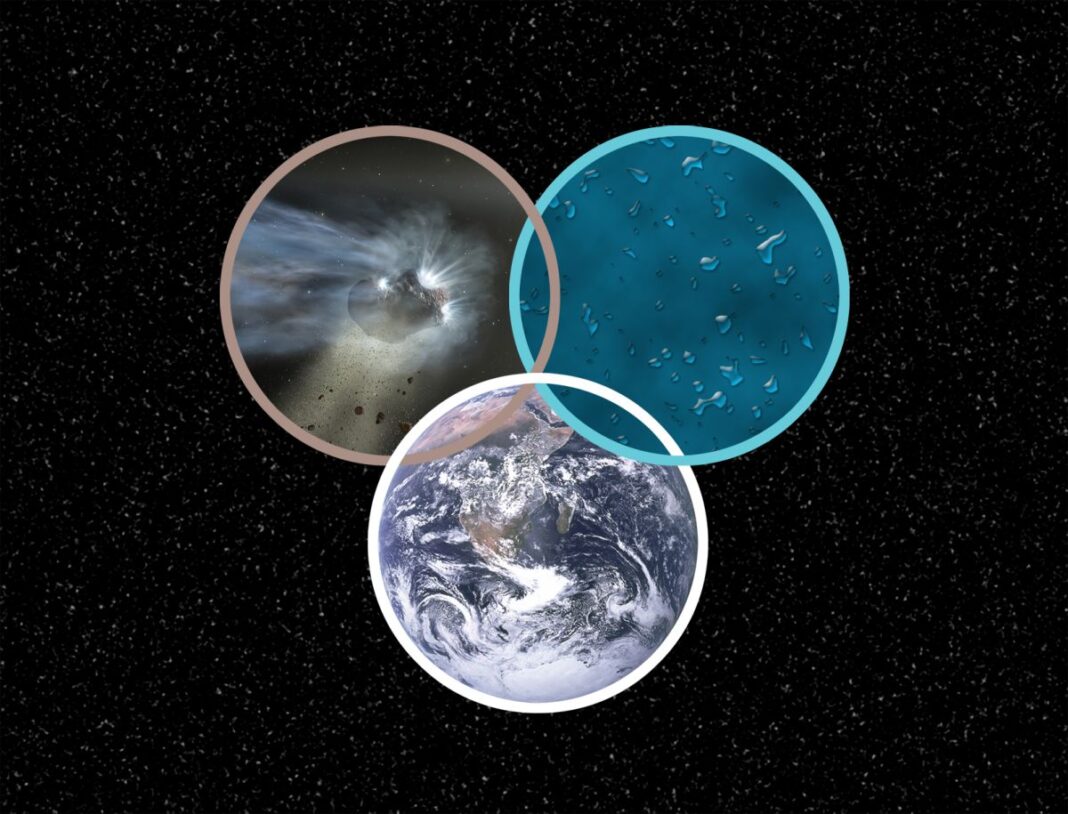Water covers over 70% of the earth, cycling from the oceans and rivers to the clouds and back again. It even makes up about 60% of our bodies. With all this water around and inside us, its easy to take its presence for granted. But in the rest of solar system, liquid water is almost impossible to find.
A water molecule consistent of 2 basic parts. Hydrogen, the simplest of all the elements and has been around since close to the beginning of our universe. Oxygen entered the sea several 100 million years later after stars began to form. The massive pressure at the center of these fiery infernos was so great that hydrogen atoms fused together to form helium. In return fused to form heavier elements like beryllium, carbon and oxygen in a process known as nucleosynthesis.
When stars eventually collapsed and exploded into supernovas, these new elements were spread across the universe and combined into new compounds, like the now fa-miler H2O. These water molecules were present in the dusty cloud that formed our solar system and more collided with our planet after is formation.

Relatively small amounts of water were present on earth when the rock formed, the high temperature and lack of surrounding atmosphere would have caused it to evaporate back into space. Water would have been enable to remain on the planet until hundreds of millions of years. When our first atmosphere formed through a process called out-gassing occurred when molten rock in the earth core released volcanic gases to the surface, creating a layer that could then trap escaping water.
Scientist have long suspected that much of it was bought by ice bearing comets, or more likely as asteroids that bombarded the earth over millions of ears. Regardless, the water that runs from our shower, drinking fountains and faucets is something that didn’t just come from a near by lake or river, but first underwent a cosmic and chaotic journey to get here
Also Read – Universe Facts



